
Good content is possible with a good strategy. Content writing may seem challenging, but it is not impossible. With constant practice, you can become a good writer and successful marketer.
If you’re developing content for any business or brand, a well-thought-out strategy is a must to help you write quality content faster. Here are seven effective content writing tips and tricks to help you improve your content.
Below, we list some invaluable tips for good content writing.
1. Craft a compelling headline
One of the best content writing tips is to take some time to understand your audience and create appealing headlines. This helps them want to read your content and share it. Continuing with other marketing steps would be useless if the headline fails to make it as impactful and clickable as possible.

Start by pairing great content with a good headline. Integrating specific numbers and data into your headline can entice readers to read your article. Additionally, try using odd-numbered digits, such as 7 or 13, to capture readers’ attention. Instead of writing “Seven Steps To Lose Fat Faster,” write “7 Steps To Lose Fat Faster” to make your title more attention-grabbing.
Your headline should be ultra-specific, as it drives the entire article. For instance, the title “An Irresistible Offer: 4 Tips to Personalize Your Sales Funnel” is specific, conveys a sense of urgency, and will generate more clicks.
2. Write unique content
Knowing your audience as you create content for them is essential. Understand the ins and outs of your message. This might help you focus on your message and tone. Don’t simply pick up information available online because readers will lose trust in your brand, and your content might never rank in search engines.
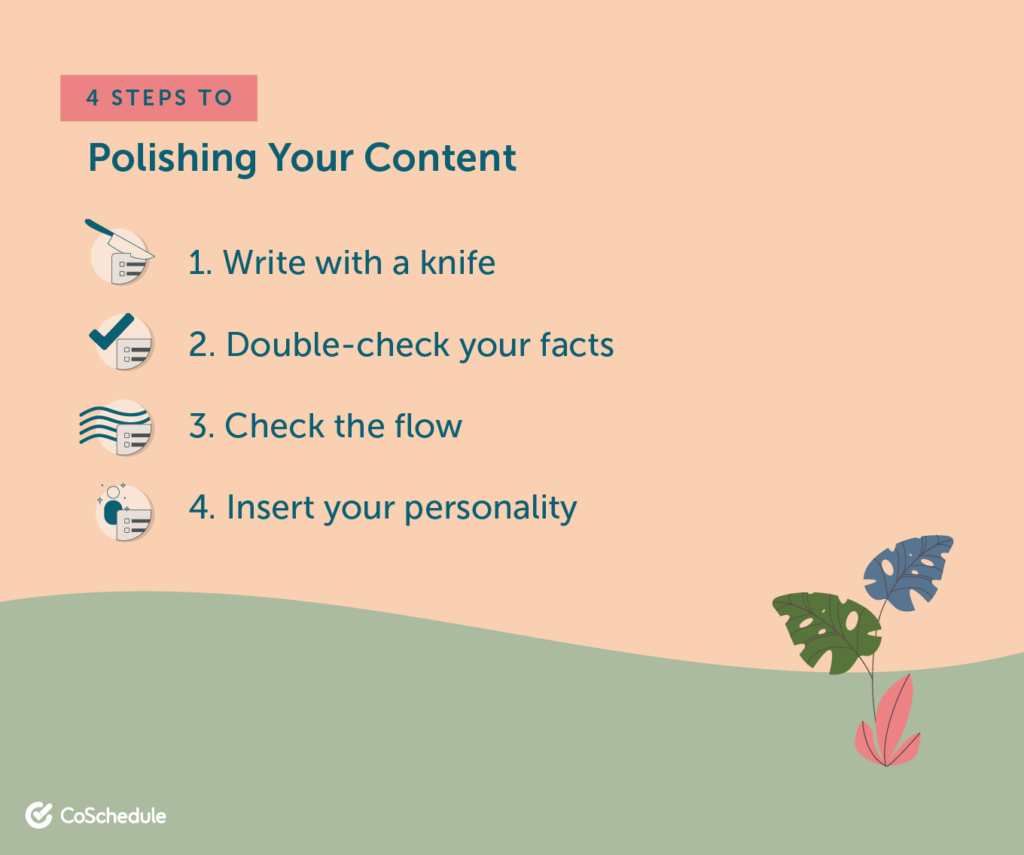
To become a persuasive writer, follow the latest content writing guidelines and clearly convey your message to your audience. So, in the introduction, include value-added content to help your audience find a solution.
For example, if you’re a renovation company, giving tips on creating more space and being mindful of colors may be a topic of interest. Keep in mind that this content is for a specific group of people and not everyone. Combine your writing with quality research, too.
3. Don’t forget SEO
Optimize your content using SEO keywords. If it is not SEO-optimized, your content may not rank in search engines. As a content writer, it is critical to constantly look for SEO writing tips on any topic you would like to write. To reach a wider audience, you must be SEO-savvy and know how to use keywords strategically.
4. Edit, edit, edit
Another content writing tip: don’t pause to edit when you’re still drafting your content. If you have a thought process, let it flow. Whenever you’ve finished the first draft, take some time off and return to it with edits.
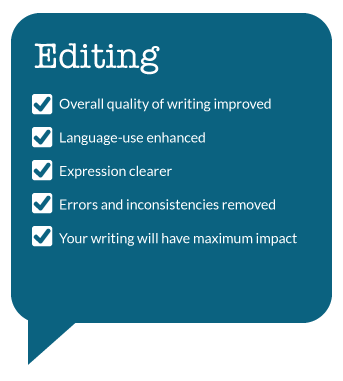
With a fresh perspective, you can fix structural issues, correct grammatical errors, and rewrite sentences you’re unsatisfied with. The best content writing tip for beginners is to review your content until you make it perfect for posting online.
5. Pack value into every sentence
One of the main content writing tips is to pack your content with valuable information. This will help reduce your website’s bounce rate, i.e., the percentage of users who move away from your website after viewing just one page.
If your sentence isn’t saying anything new, delete it. In content creation, you must figure out what people want from you and how you will deliver it to them. For example, you want to write an article on the importance of SEO. Research and refer to multiple sources to break the concept into simpler subsections or subheadings. Include reliable sources and statistics to strengthen your content.
6. Ensure readability
Is your blog post long, over 3,000 words? To break it down.
- Create short paragraphs.
- Use bullet points.
- Use images and/or videos.
- Keep your sentences short.
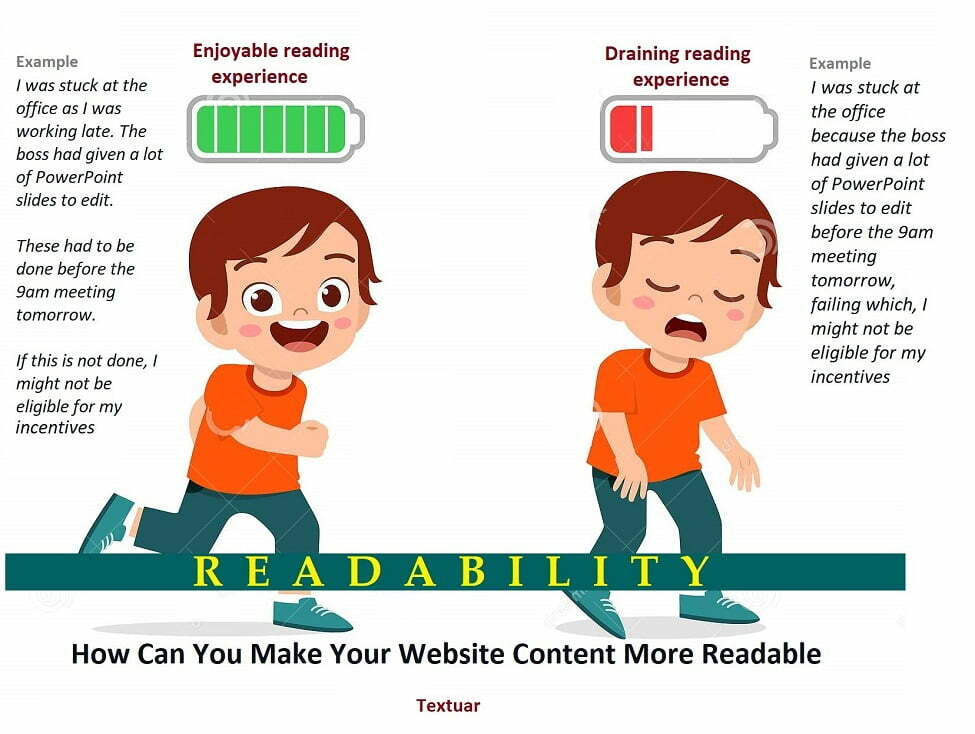
Readability is crucial for any content – long- or short-form. This is an excellent opportunity to increase traffic to your website. From the headline to the conclusion, ensure that your content follows a single, clear idea. Focus on maintaining relevance throughout the content.
7. Use tools for effective content writing
Some fantastic tools are part of any content writing guide to help you rewrite sentences, correct grammatical errors, ensure flow, and so on. These tools enable you to write more in less time. Some of them are as follows:
- Grammarly
Grammarly is an AI-powered application that detects and corrects spelling mistakes, punctuation and grammar errors, style discrepancies, and so on. It also lets you set goals by audience, formality, domain, tone, and intent. Use this tool to develop content quickly.
- SEMrush
SEMrush is packed with features. It suggests different content ideas based on topics of interest, trends, and keywords. You can use the smart editor that gives writing suggestions and guides you in optimizing your copy for views and engagement.
- BuzzSumo
BuzzSumo helps perform competitive research on popular topics within your industry. This platform will also direct you to great content that is liked and shared widely by enabling you to track and monitor billions of articles.
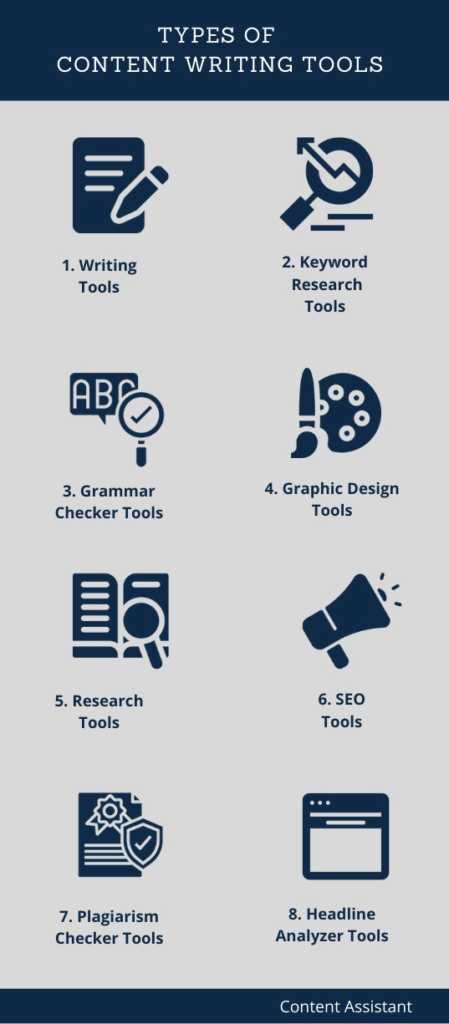
- Google Search Console
As it helps you find keywords, this tool is primarily used to create winning SEO content. It will show keywords with more clicks, low clicks, and negative keywords. When creating SEO-optimized headlines for your content, turn to Google Search Console.
- Peppertype.ai
You can use AI to help create content. Peppertype.ai from Pepper Content is a fantastic tool that generates interesting, unique content within just a few clicks. The content is grammatically correct, SEO optimized, and much more.

8. Include a call to action
Your writing should educate and inform your readers. This way, your readers might return to your site wanting more. You should know what your readers are looking for, and prompt them to take action, such as subscribing to your blog or newsletter.
You need to convert them into buyers to increase sales tactically. Before you write your call to action (CTA), determine the goal you’re trying to achieve: do you want to boost sales, increase subscriptions, or simply want users to read more?
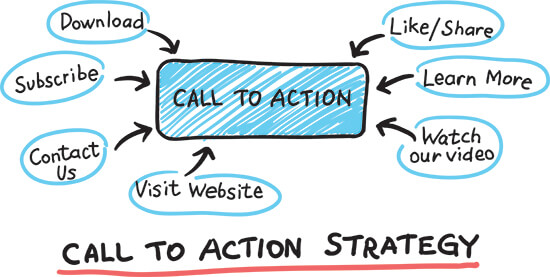
An appropriate call to action should use strong verbs and be brief. It is usually included toward the end of the article. The simplest examples of a call to action are “Buy now!” “Sign up for free!” “Download now!” and so on.
9. Incorporate expert insights
Expert quotes, or original insights will take your content piece to the next level, making it more credible. By linking to credible sites, show your readers that your content is well-researched and authoritative. Support your points by adding opinions or quotes from experts. This exercise can also help you rank better in search engines.
The Final Word
Actively pursuing your passion for writing is great, but you need to be strategic, too. Start writing with the audience in mind, and you will be able to create more specific and insightful content.
Another effective content writing tip is to create content using a language and tone that is comprehensible. Oversimplifying or overcomplicating it is likely to be far less effective. In a nutshell, if you fail to create compelling content, you won’t generate leads or sales.

FAQs
Content writing is the practice of creating engaging content that is later marketed to a target audience. It has become an indispensable part of digital marketing today.
Not if you know how to use the right words and frame sentences to create high-quality messaging. Understanding your audience can be tricky initially, but it is highly crucial to bringing precision to your writing.
An average content writer should possess research skills and the ability to include findings into engaging copy. Furthermore, self-discipline and time management skills are a must, and knowledge of SEO best practices is a bonus.
The basics of content writing include research, keyword research and SEO, structural planning, writing, editing, and publishing.
SEO copywriting is all about creating content using keywords for search engines to understand. The keywords are studded into sentences for the article to be recognized on and ranked by search engines.
Latest Blogs
Learn how to rank on AI search engines like ChatGPT, Perplexity, and Gemini by optimizing your content for authority, structure, and relevance. Stay ahead in AI-driven search with this strategic guide.
Explore the best healthcare SEO services for your medical practice. Improve online visibility and effectively reach more patients in need of your services.
Discover top social media agencies specializing in banking solutions, enhancing financial services and driving engagement.
Get your hands on the latest news!
Similar Posts

B2C Marketing
5 mins read
Top Choices for Best Content Marketing Services in B2B Industries

Artificial Intelligence
5 mins read
How A Lead Generation Specialist Can Use AI-Powered Content Funnels to Drive Conversions
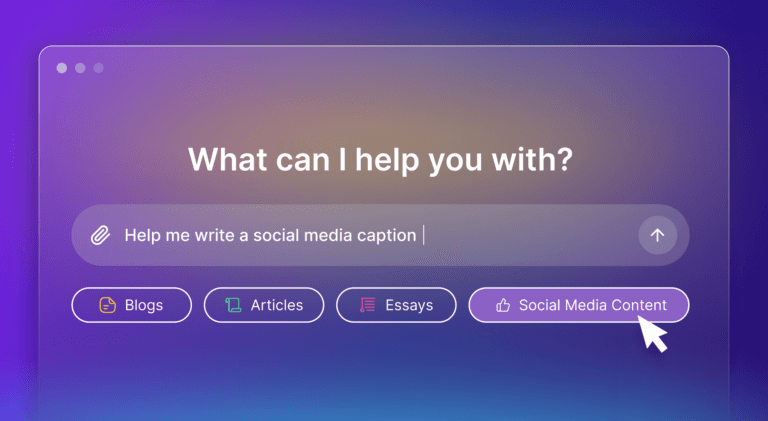
Artificial Intelligence
4 mins read